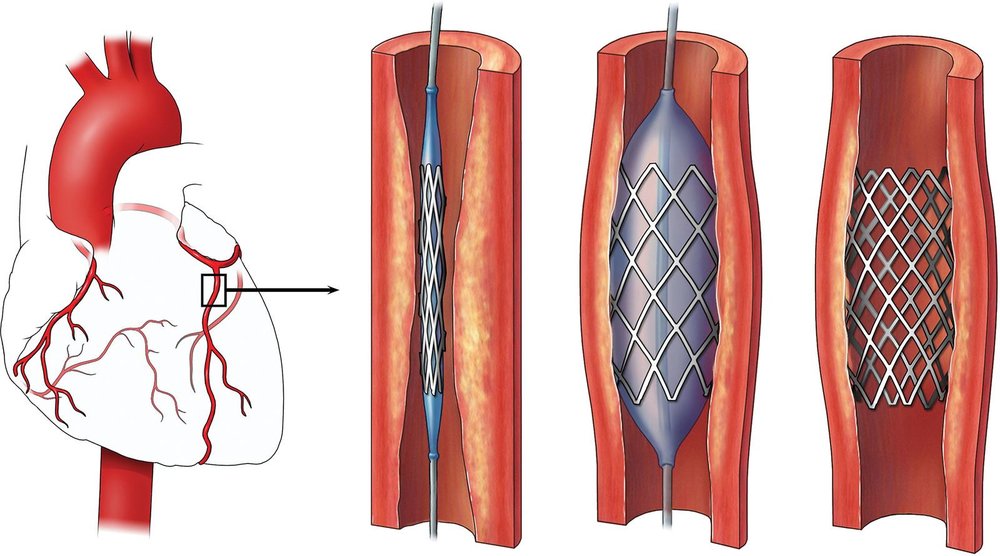Percutaneous Coronary Intervention (PCI)/Coronary Angioplasty
Home / Procedure Detail

Percutaneous Coronary Intervention (PCI)/Coronary Angioplasty
- Procedure
- Percutaneous Coronary Intervention (PCI)/Coronary Angioplasty
Percutaneous angiography is a non-invasive technique for diagnosing and treating cardiac issues. A thin catheter is inserted into a person’s leg or groin area and guided to the heart after being inflated with a balloon at the end of it. A stent may be placed in an artery to keep it open in some circumstances. The surgery is usually done under local anesthesia and takes between one and three hours to complete.
Stents provide heart conditions patients with a much better quality of life by foregoing open-heart surgery and its necessary recovery period. Not to mention, stent procedures have great long-term success rates.

Procedure Primary Points
- Angioplasty: Treating atherosclerosis by unclogging blocked arteries.
- When to consider angioplasty: Medications and lifestyle changes failed, worsening chest pain, recent heart attack.
- Angioplasty benefits: Quickly unclogs arteries, reduces heart damage.
- Bypass surgery alternative: Severe heart disease or weak heart muscle with diabetes and multiple blockages.
- Choose the right procedure: Consult with a doctor based on your heart condition and overall health.
Why it's done
Angioplasty is a medical procedure used to treat atherosclerosis, which is the buildup of fatty plaques in the heart’s blood vessels.
You may want to consider angioplasty if:
-You have tried medications or different lifestyle changes, but they haven’t improved your heart health.
-Your chest pain is progressively getting worse.
-You recently had a heart attack.
Angioplasty can unclog a blocked artery quickly and reduce the damage done to your heart. However, not everyone is a candidate for this procedure. Depending on how severe your heart disease is and your overall health, your doctor may deem bypass surgery a better option.
You may need coronary artery bypass surgery if either:
-The main artery that brings blood to the left side of your heart is narrow
OR
-Your heart muscle is weak AND you have diabetes with multiple severe blockages in your arteries.
Medical Procedures
MedEx did help me a lot not only for connecting with clinics but also for other miscellaneous items such as visa extention. I am really sastify with the services received from MedEx. I've recommended to some of my friends to connect with MedEx too if they have plan to go for medical trip to BKK. 🙂
Engyin HtunSingapore 
Highly recommend to MedEx .They are professional and amazing team.
MedEx Staffs should have closed relationships with hospitals staffs to get more information and services.So,they can give the best services to patients.
Thomas FlyerMyanmar 
Owing to my heart pacemaker implant case, if I got a chance to refer anyone, without blinking my eyes I would refer to Vejthani Hospital. I am very grateful.
Bhagwan Ratna TuladharKathmandu, Nepal 
MedEx was very kind, patient, supportive and very helpful with my needs for seeing doctors and doing physical therapy here in Thailand. MedEx fulfilled everything I needed with my stay here with prompt actions, and I highly recommend MedEx if you are coming to Bangkok for medical treatment.
Ko Sai Aung Lwin TunMyanmar 










